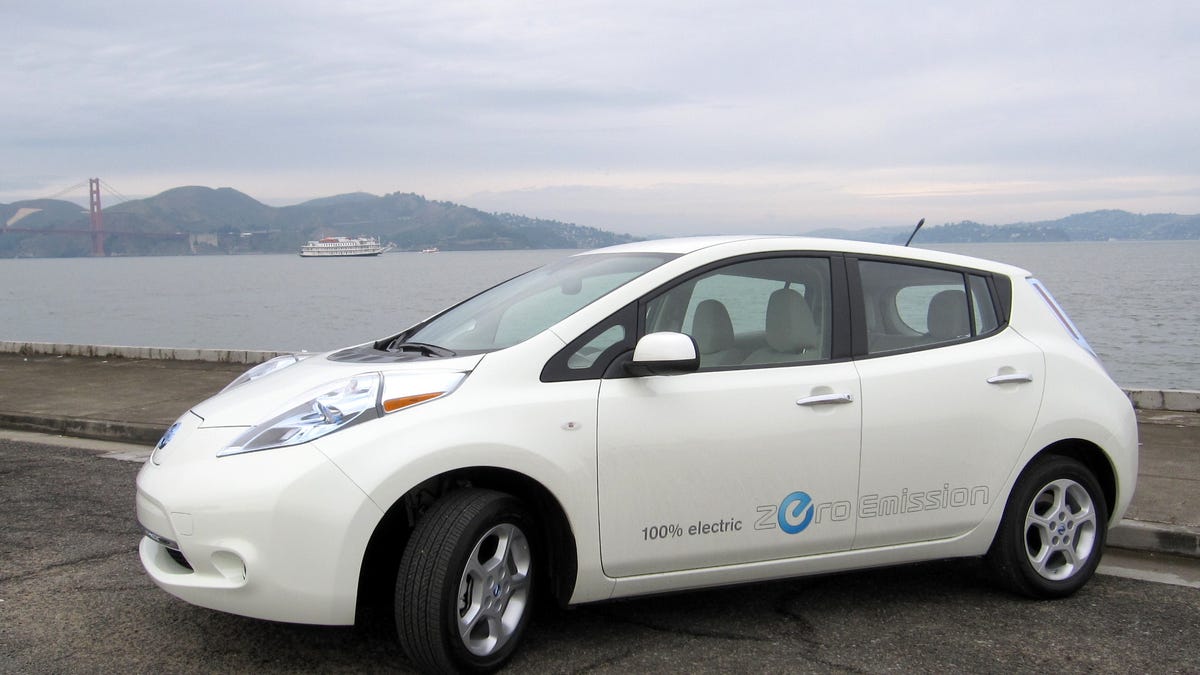Nissan: EV battery repairs won't break the bank
Automotive News reports on Nissan's claim that battery repairs for the Leaf electric car would cost less than a thousand dollars, as only individual modules would need replacing.

TOKYO--Nissan Motor, aiming to allay concern about high replacement costs for the Leaf electric car's lithium ion battery, says such repairs will run into the hundreds, not thousands, of dollars.
That's because fixing a damaged battery likely would require swapping out only certain modules, not the whole battery pack, Vice President Simon Sproule says.
"There has been a lot of chatter online about tens of thousands of dollars or euros to replace a whole battery pack," Sproule says on a company Web page.
"Really, you are going to focus on the modules, and the modules are going to be in the hundreds, not the thousands of euros or dollars, because if there is going to be a failure, it's more likely to be an individual module, not the whole battery pack," he says.
The Leaf's lithium ion battery pack is made up of interchangeable modules that house individual cells. Nissan backs the battery with a warranty of eight years or 100,000 miles.
Nissan expects most customers to keep Leafs about five years, Sproule said. At that point, the battery is still expected to have about 80 percent of its original capacity.
Sproule, who heads global communications for Nissan, also downplayed concerns that the Leaf's battery could be damaged by frequent quick charging, which critics say can degrade the cells.
Sproule didn't deny that continual quick-charging could damage the battery, and didn't say how much is too much. But he implied that the typical driver doesn't have to worry about it. "If somebody uses the fast charging system every day, that means they are driving about 200 miles a day, which on an annual basis is over 70,000 miles," Sproule said. "There aren't many people that drive 72,000 miles a year in any car, so it's an unlikely scenario that somebody is charging fast-charge every single day."
Instead, the anticipated recharge pattern will be topping off the battery through a slow charge at night. Said Sproule: "The durability of the batteries is not going to be a weak point for the car."
(Source: Automotive News)